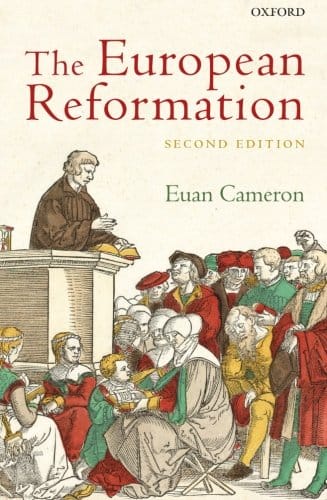Bismarck and the German Empire
Explore how Otto von Bismarck unified Germany, shaped domestic and foreign policy, and left a complex legacy that still influences European history today.

Introduction: The Iron Chancellor and a Nation Forged
Few political figures have reshaped the map of Europe as dramatically as Otto von Bismarck. Known as the “Iron Chancellor,” Bismarck masterminded the unification of disparate German states into a powerful empire in 1871, altering the balance of power that had existed since the Napoleonic era. His mix of calculated diplomacy, limited warfare, and pragmatic domestic reform created a political model that influenced the continent for generations. This article explores Bismarck’s life, the formation of the German Empire, his domestic and foreign policies, and the enduring legacy that still echoes through modern Europe.
Early Life and Meteoric Rise
Born on April 1, 1815, in Schönhausen, Prussia, Otto Eduard Leopold von Bismarck grew up in a conservative Junker household. After studying law at Göttingen and Berlin, he briefly pursued a bureaucratic career before devoting himself to agriculture and local politics. His sharp intellect and commanding presence caught the eye of King Wilhelm I, who appointed him Prussian ambassador to the German Confederation in Frankfurt, then to St. Petersburg and Paris. These posts honed his diplomatic skills and convinced him that Prussia’s destiny lay in leading a united German nation. In 1862, Wilhelm I summoned Bismarck to become Minister-President of Prussia—a role that would soon transform him into the driving force behind unification.
The Road to German Unification
Bismarck famously declared that the great questions of the day would be decided by “blood and iron.” Yet his strategy combined limited warfare with shrewd alliances and realpolitik. The Danish War of 1864, fought alongside Austria, secured Schleswig and Holstein, enhancing Prussian prestige. Two years later, Bismarck provoked Austria into the Austro-Prussian War. The decisive Battle of Königgrätz in 1866 crushed Austrian influence in German affairs and led to the creation of the North German Confederation under Prussian leadership. The final step came with the Franco-Prussian War of 1870–71. Bismarck edited the Ems Dispatch, manipulating French pride and German nationalism into open conflict. Victory electrified the German public, and on January 18, 1871, King Wilhelm I was proclaimed German Emperor in the Hall of Mirrors at Versailles—symbolically uniting Germany on French soil.
Domestic Policies: Conservatism Meets Pragmatism
As Chancellor of the newly minted German Empire, Bismarck sought to consolidate national unity through cautious reform. He balanced conservative principles with pragmatic concessions to burgeoning social forces. A staunch opponent of revolutionary socialism, he nevertheless introduced pioneering social welfare measures: sickness insurance in 1883, accident insurance in 1884, and old-age pensions in 1889. These programs co-opted working-class loyalty, taking the wind out of Socialist sails while fostering an image of the state as protector of its citizens.
Bismarck also waged the Kulturkampf (“culture struggle”) against the Catholic Church, fearing papal influence over the Empire’s substantial Catholic minority. Though anticlerical laws restricted clerical authority and education, the campaign backfired, strengthening Catholic political activism through the Center Party. Learning from this misstep, Bismarck moderated the conflict by the late 1870s, demonstrating his readiness to pivot when policies threatened national cohesion.
Foreign Policy: Maintaining the Balance of Power
Internationally, Bismarck’s priority after 1871 was preserving peace to safeguard the Empire’s gains. He understood Germany’s central position made it vulnerable to hostile coalitions, so he engineered a complex web of alliances. The Three Emperors’ League (1873) with Russia and Austria-Hungary sought to placate two powerful neighbors, while the Dual Alliance with Austria (1879) and the inclusion of Italy in the Triple Alliance (1882) anchored Germany in Central Europe. Bismarck also signed the Reinsurance Treaty with Russia in 1887, securing neutrality in case either signatory fought a third power.
Colonial ambitions, initially dismissed by Bismarck, entered the agenda in the 1880s amid public and commercial pressure. Though Germany acquired territories in Africa and the Pacific, the Chancellor treated them primarily as bargaining chips in European diplomacy, wary of overstretching imperial resources.
Challenges and the Fall from Power
Despite his political acumen, Bismarck faced mounting challenges in the late 1880s. Kaiser Wilhelm II, ascending the throne in 1888, chafed at his Chancellor’s domineering style and conservative policies. Generational change, rising industrialization, and growing political parties demanded new approaches. In 1890, following acrimonious disputes over social legislation and foreign affairs, Wilhelm II dismissed Bismarck. The Iron Chancellor retreated to his estate at Friedrichsruh, where he wrote voluminous memoirs until his death in 1898.
Legacy of Bismarck and the German Empire
Bismarck’s creation endured just 47 years, yet its influence proved profound. The German Empire rapidly became a manufacturing powerhouse, exporting chemicals, steel, and machinery that rivaled Britain’s industrial supremacy. Its federal structure, combining strong central authority with significant regional autonomy, offered a template for modern governance. Bismarck’s welfare legislation remains a cornerstone of European social models, and his diplomatic system—although dismantled by his successors—illustrated the delicate art of balancing rival powers through limited commitments and flexible agreements.
However, Bismarck’s realist worldview carried seeds of future conflict. By excluding liberal voices from nation-building and relying on authoritarian structures, he suppressed political pluralism. Once Bismarck’s careful diplomacy disappeared, Germany’s strategic position encouraged brinkmanship that contributed to World War I. Thus, his legacy is paradoxical: he achieved unification peacefully relative to larger continental wars, yet the Empire he forged ultimately stumbled into catastrophic conflict.
Conclusion: The Enduring Echoes of Iron and Empire
Otto von Bismarck remains one of history’s great statecraft tacticians. Through a deft blend of military force, diplomatic finesse, and social innovation, he forged the German Empire and defined European politics for a generation. His successes, failures, and compromises continue to inform debates about leadership, national identity, and international relations. To study Bismarck is to grapple with the complexities of power—how it is won, how it is wielded, and how its consequences extend far beyond the intentions of even the most brilliant architect.
